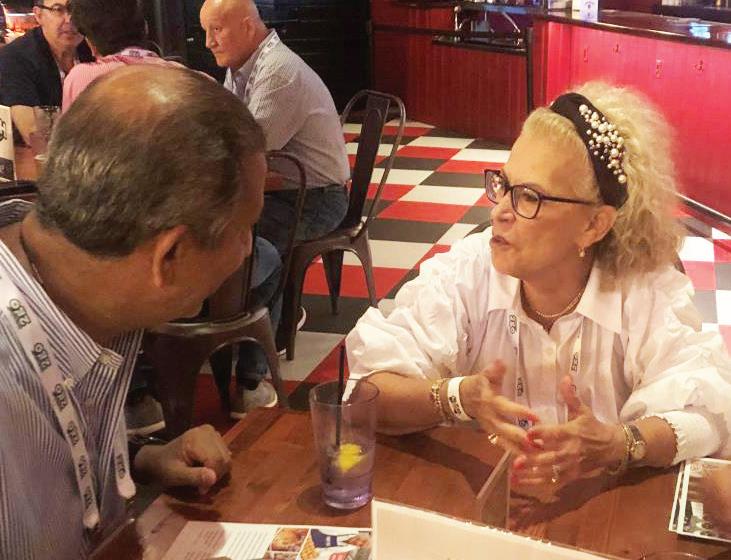FRANCHISE CONSULTANT


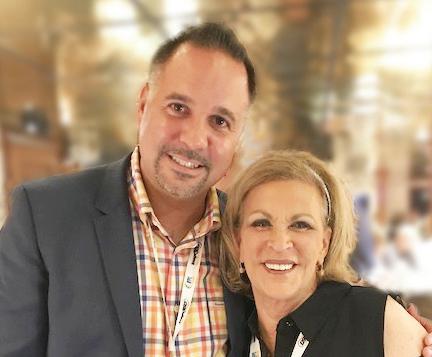












































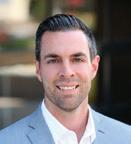


















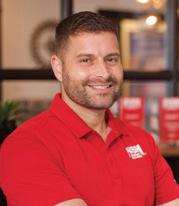







When IFPG founder Don Daszkowski invited me to join the team back in January 2020, I already knew I wanted in. Prior to coming on board, I admired IFPG from afar. I watched its evolution and growth unfold on social media. With every post, I could see IFPG's amazing culture, energy and unlimited potential. I admit I had a bad case of FOMO.



I never accepted a position right at a job interview before, but IFPG had me at hello. As Don explained his vision of offering the most value in the industry and wowing members with incredible services, I could see that he knew how to grow an organization the right way. His humble goal has been realized and rewarded with numerous accolades and incredible successes.

As part of the team, I can tell you that IFPG's strength lies in its people — the entire team and our amazing members. Business growth comes from nurturing and cultivating relationships and IFPG has mastered the art.
It's fulfilling to work in an industry where your success equals the success of others — but that is exactly the nature of franchising. We all grow together. Starting on page 12, our Growing Together theme is highlighted by IFPG members who share their secrets for sustainable growth. While all of these members have their own unique story, they agree that their people have been crucial to their success.
As IFPG celebrates its 10-year anniversary, we take a look back as well as a look ahead. Our time line on page 10 gives you a look back with a visual snapshot of IFPG through the years. Looking ahead, we meet Jim Waskovich and Jack Nagle of Princeton Equity Group. Like me, they admired IFPG from afar and saw incredible potential. On page 6, they share their goals for IFPG through their strategic equity investment and tell us why IFPG members have a lot to look forward to.
Speaking of looking forward, the IFPG team couldn't be more excited for this year's Retreat. Turn to page 8 for a glimpse of what it means to all of us. Here's to a great 2022 Retreat and many more years of growing together!








Theidea of private equity intimidates some people, but that fear is unwarranted, says Jim Waskovich, Princeton Equity Group (Princeton) co-founder and managing partner. “Private equity is frequently misunderstood,” he says. “In the media, private equity is often portrayed as short-term strategies for short-term results, but that doesn’t describe us at all.”
For Waskovich, investing is all about growth and partnership. “We will typically double or triple employee count when we make an investment in a franchise company,” he says. “Private equity ownership should be welcomed by franchisees because it makes franchise locations more valuable.”
Like many people in franchising, Waskovich has a deep love for the industry. He started his career investing in software companies, but soon discovered the many merits of the franchise model. His first investments in Massage Envy and European Wax Center proved successful and he was hooked.
But it wasn't just unit economics that lured Waskovich into franchising; it was culture. “I love franchising. It's friendly and inclusive.” And he has fun with it. Waskovich and his team will often visit a franchise location wearing the brand's swag. “There's nothing more exciting than experiencing a franchise in person.”
After several successful investments in franchisors, Waskovich and his partner, Doug Kennealey, decided to invest exclusively in

franchise companies and raised a $350 million fund in 2020 to accelerate their growth.
Princeton has invested in more than 20 franchisors, including Ellie Mental Health, Five Star Franchising and D1 Training. They look for the same qualities in franchise brands that most candidates do, such as scalability and repeat business. They also go through their own validation process and talk to multiple franchisees in every brand they consider.
Through their investments, Princeton's leaders realized the importance of broker networks.

Waskovich and Vice President Jack Nagle had their eye on one broker network in particular: IFPG. “We love the IFPG membership model. We thought it was very special and investable. IFPG is the most democratized broker network that exists,” says Nagle. “Also, we love Don and his team, and the IFPG culture as a whole. The people are just fantastic.”

So what does Princeton's investment mean for IFPG members? Nagle says it's all about supporting members with additional services and opportunities. “We plan to bring in more resources and leadership-talented people,” says Nagle. “We're here to make IFPG members even more successful.”
Waskovich thinks of IFPG members the same way he thinks of franchisees. “We have a your-success-is-our-success mindset,” he says. “And with IFPG, it's a winning proposition for everyone.”
—Jill Abrahamsen“We are people-first investors. We only do deals with people we enjoy doing business with.”
“All of our brands are involved with broker networks. We have a deep respect for brokers and seek constant engagement with them.”OPPOSITE: Princeton Equity Group Co-founder and Managing Partner Jim Waskovich (left) with Vice President Jack Nagle outside the company's headquarters in downtown Princeton, N.J. ABOVE AND LEFT: Princeton Equity Group invests exclusively in growth-driven franchise companies.
the years, the IFPG Retreat has created great memories for our team. From the excitement of preparing for the event, to the joys and challenges of running it, to finally celebrating its success, the IFPG Retreat holds a special place in our hearts. Here's some of our favorite moments.


“After a day’s festivities at the Retreat a couple of years ago, my son Michael and I went into the Land Shark Bar and Grill at the resort and discovered a karaoke night. Michael and I got up and did a duet to “Rappers Delight.” To our surprise, after we sat down an IFPG member took the stage and nailed the lyrics to “I Like Big Butts and I Cannot Lie.” His dancing and moves — including twerking — had us all rolling on the floor and laughing until we had tears in our eyes.”
—Mike Handy“I love how the office buzzes with excitement in preparation for the Retreat. It’s great to be part of a company that has such amazing energy.”

—Haley Cafarella
“Planning for Retreat can be incredibly stressful. By the time the boxes are shipped out, we want to kill each other. Kelly will literally lie on the floor and cry at least once every year. But when it’s finally time for Retreat, it all comes together like a well-oiled machine.”

 —Christine Piecyk
—Christine Piecyk
“It wasn't easy waking up for them, but the sunrise beach workouts at Retreat 2021 were epic! The best part was being coached by the actual founders of the brands (Adam Rice from ISI Elite and Rick Mayo from Alloy Personal Training). How cool is that?”

 —Jill Abrahamsen
—Jill Abrahamsen
“When I first started at IFPG, we had an all-female staff. It was inspiring to see a team of women run a massive event like Retreat so seamlessly. As IFPG grows, we continue to add amazing associates (both male and female) who bring new skills and talents to the team.”



“Shortly after I started working at IFPG in 2018, I went to my first Retreat. We arrived the day before the event to set up, but that evening we still had a ton of name tags to create for registration the next day. I wanted to impress the team, so I decided to get a head start on making the name tags so we wouldn't have to worry about them in the morning. I went to the supply closet at midnight to get started and sure enough, our events manager Kelly was also there working on them! That was the first of many times I knew I was working with the right people.”


“Every year to end IFPG Retreat, Amy and I go paddle boarding! We go off on the Intracoastal together and celebrate a successful event in silence.”
—Kelly Falkena-Tominus
“Our team lunch following the 2021 IFPG Retreat was so fun and relaxing after the busy and hectic weeks leading up to the event.” —Chris Noonan
“I loved finally meeting so many of our members in person at my first Retreat in 2021. It was like a giant family reunion!” —Ally Bottomly
—Hirra Mirza
—Amy Comerford
When we came on to the scene in 2012, we disrupted the franchise broker business with our unique membership-based structure.




Our inclusive culture has helped us attract the best in the business, including Karol Mercurio, who has been with us since day one.

Founding member Mary Ann Peres was pivitoal in establishing IFPG Membership.
IFPG Contributing Member Bill King took the lead in launching the IFPG Ethics Committee — a group of IFPG members who established business practice standards for IFPG Consultants.


Since the early days, the IFPG team has been driven by a commitment to continual improvement.



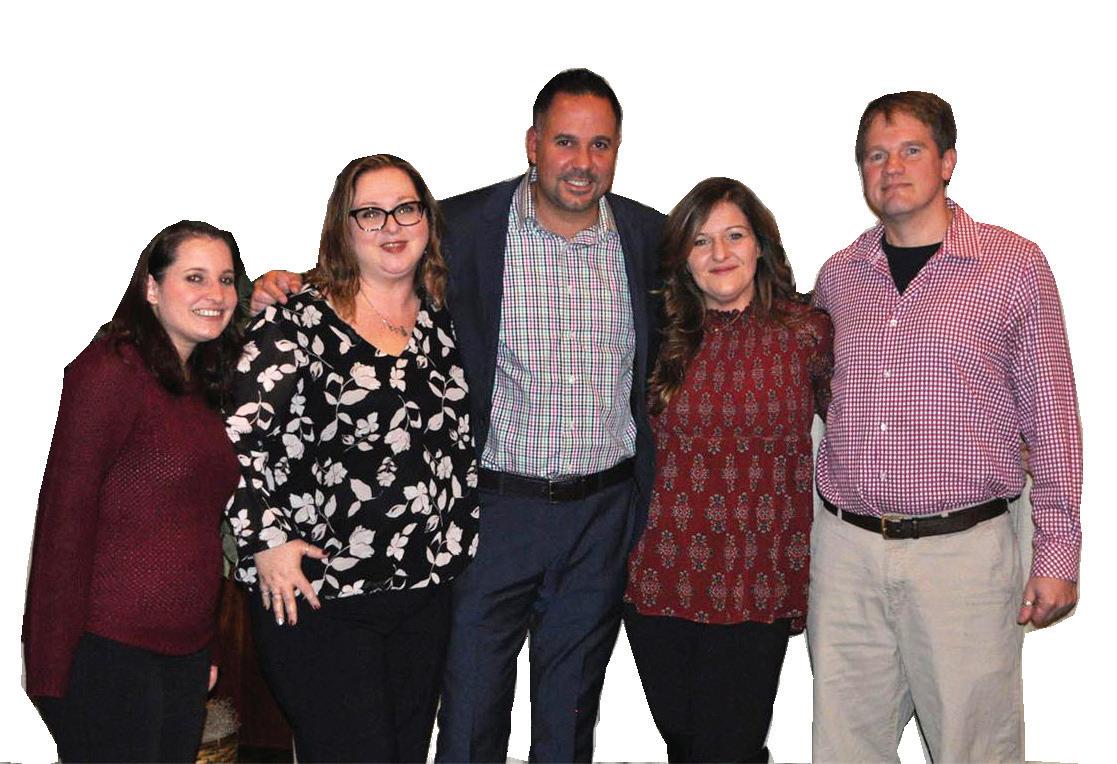
Our Career Transition Leads Program has helped bring quality, qualified candidates to IFPG members.

The late Roger Murphy of Murphy Business Brokers was a longstanding strategic partner of IFPG.
Top-notch training and education has set IFPG apart since day one.

My how we’ve grown! The first IFPG Retreat in 2017 had about 165 attendees. More than 600 members registered for Retreat 2022!

We have been voted the No. 1 franchise broker network on Entrepreneur’s top supplier list in 2019, 2020, 2021 and 2022.

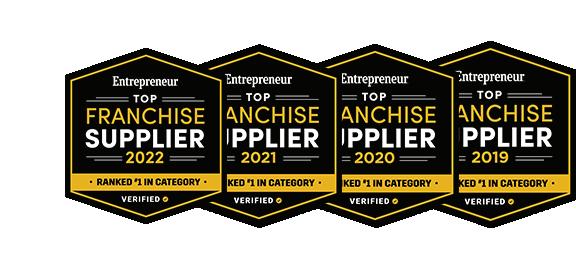
Entrepreneur Red Boswell joins IFPG as President.
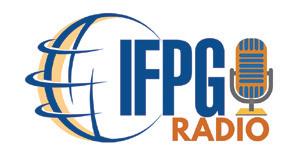

From fun team-building activities like driving NASCAR race cars, to epic speed networking sessions, we continue to debut innovative ways to connect IFPG members.

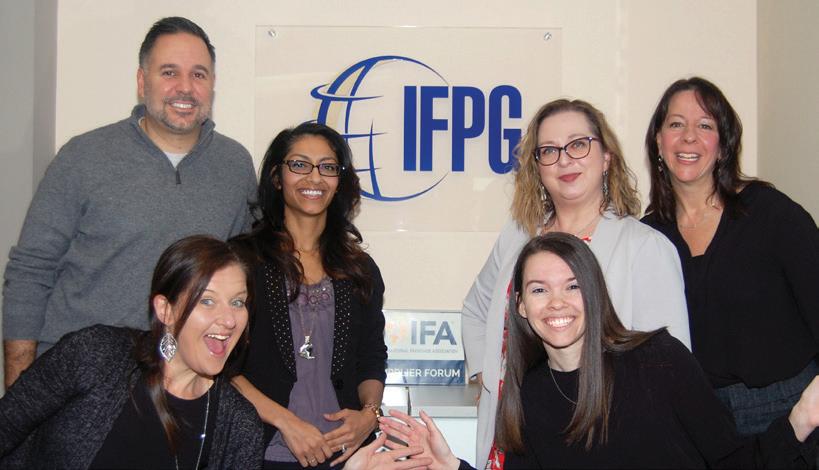





IFPG Regional Discovery Mixers have become bigger and better than ever!


With Franchise Consultant Magazine, IFPG Radio and FranchiseWire, we introduced more ways for brands to share their stories.


The pandemic led to many IFPG innovations including the Franchise Summit and Virtual Speed Networking.

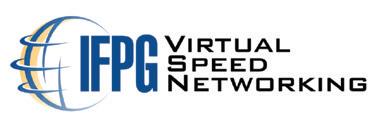
With a strategic investment from Princeton Equity Group, the sky is the limit for IFPG! Members will enjoy more support, programs and innovation in IFPG’s next decade and beyond!

Whenit comes to building a thriving franchise operation, it's the little things that make a big difference. For the Fish Window Cleaning franchise, intangibles like believing in the business model, staying true to company core values and offering a franchise opportunity with a good work-life balance have been key. “It really helps that founders Mike and Linda Merrick ran FISH for 20 years before franchising,” says John English, Fish Window Cleaning's director of development. “They knew it was a great business and that franchisees would absolutely succeed by following their systems,” he says.

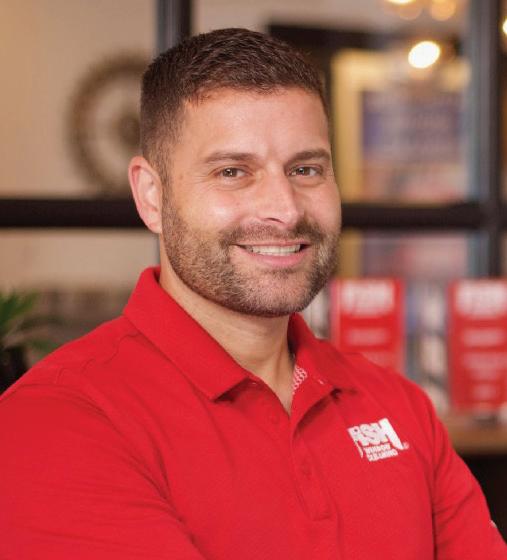


Complete transparency has been a driving force in finding the right franchise partners. The Merricks believe in their business model but always tell candidates the good, the bad and the ugly about running a FISH franchise. “Their candid approach finds folks who are a good fit, most of whom are then won over by the culture at Discovery Day.”
Much of FISH’s system is built on the best-selling book “The EMyth” by Michael Gerber. The book inspired FISH to instill a
“Life is too short to work in a job you don’t enjoy.”
business practice that guarantees sustainable growth: running the business rather than working in the business. “Hiring good employees is the biggest challenge for any business, particularly in service-based ones and especially in this current climate. However, keeping employees is what allows you to keep growing,” English says.
FISH took a growth-driven approach from the beginning by focusing on repeat business from commercial clients. “Our franchisees continually grow a book of business that's serviced weekly, biweekly, monthly and year-round even through the cold and snowy winter.”
FISH's motto of “a business that you can own without it owning you,” is true to its words. Franchisees and employees do not work nights, weekends or
LEFT: Franchisees at the 2022 FISH convention in July. ABOVE: President Randy Cross introducing the corporate team at the 2020 FISH convention.

holidays. “The FISH culture is centered around family values, work-life balance, and treating employees well,” says English.
FISH continues to grow by partnering with the right franchisees who can work themselves quickly into semiabsentee and absentee ownership but are willing to jump in with both feet on day one.


English explains that part of FISH’s success comes from the nature of the business. “The most basic principle to our success is that glass is everywhere, and it all has to be cleaned by someone … and we want it to be FISH. It is just that simple.”
—Jill AbrahamsenFor more information, visit www.fishwindowcleaning.com or www.franchiseconsultantmag.com, company code 16541.
Fish Window Cleaning was founded in 1978 when Mike Merrick was laid off from Farm and Home Savings and Loan. During that time, he noticed a window cleaner working and struck up a conversation with him. Merrick was amazed to learn that the window cleaner made more money than he did at the bank! He decided there and then that he never wanted to work for anyone again and bought the window cleaning business.
First location: 1978 Franchising since: 1998 Total units: 270
Fun fact: It takes the current FISH franchise system just 20 minutes to clean the amount of glass Merrick cleaned his entire first year in business!
Anyonewho knows Sherri Seiber, understands why FranFund has grown into the leader it is today. It's not just because of the great services that FranFund offers; it's because of the people who make up the FranFund team. And that's by design. “We are very proud that we have a long-standing culture in place through our hiring practices,” Seiber says.
Since the pandemic, experts have touted that creating a culture is the way to a successful company with happy employees, but Seiber knew that all along. “The FranFund vision of boutiquelevel customer service and our ‘work hard, play hard’ mentality has been the secret to our success.”
When you're in the company of the FranFund team, you know it. Seiber's Texas-sized personality, graciousness and welcoming demeanor have rubbed off on her team. Customers, partners,


consultants and franchisors are all treated like VIPs by team FranFund. “We think of our team as a flywheel (wagon wheel), with the customer in the center and the different departments at FranFund making up the spokes of that wheel. To roll correctly, all of the spokes are important!”
It's a family affair at FranFund. Seiber's husband, Geoff (below) founded the company in 2006 and serves as CEO. Their son Tim (opposite, far right) is FranFund's director of franchise relations. But those aren't the only familial relationships at FranFund. The extended FranFund family includes the team as well as the franchise community.
FranFund takes a very active role in the franchise industry. “We support the International Franchise Association’s Franchise Action Network (FAN) at the maximum level. FAN fights for Main Street on Capitol Hill. We regularly speak on franchise-industry panels and potential candidatefacing panels and podcasts, and contribute articles educating folks about this exciting and booming industry,” Seiber says.
With a focus on franchising, FranFund's success is a result of building relationships in the industry. “We are proud to report that more than 95% of our revenue is generated through direct referrals from franchisors, FSOs, broker networks such as IFPG, previous clients, and professional sources,” she says. “We continue to develop those deep relationships by delivering on our value proposition, and we can pivot if and when the market changes.”
 —Jill Abrahamsen
—Jill Abrahamsen
For more information, visit www.franfund.com.
“Success is not an accident. Success is a choice.”
A family-like culture has been the foundation of FranFund's success.


Before the creation of FranFund in 2006, aspiring franchise owners had to seek various types of funding from sources that offered only one funding solution. For example, for an SBA loan, they went to a bank. For a ROBS transaction, they
needed to self-educate that the program exists and then find a provider. The same goes for equipment leasing. The genesis of FranFund was the idea of putting multiple funding solutions under one roof so that each client gets a custom-made solution.
Naturally, the competition quickly followed suit.
FranFund grew slowly during that time, but when the economy started to recover in 2013-14, FranFund's team was poised and ready, and its growth trajectory exploded!
ThePuroClean franchise, which specializes in property restoration after disasters, has doubled in size during the past five years. And it has posted 50% growth in the past two years alone. President and Chief Operating Officer Steve White attributes that success to PuroClean’s striving toward excellence in all pursuits as well as its care in expanding the brand. White compliments PuroClean’s franchising and business development teams for being “committed to continually expanding our presence in new territories to provide better coverage nationwide. Our partnerships with some of the largest insurance carriers and property management firms in the country are also beneficial, and our
business development team works very hard to extend these partner relations.” He also tips his hat to front-line PuroClean players and their training. “Our technicians are some of the best in the industry,” with skills honed during initial training, subsequent classes held in the field, and online training that continues indefinitely.
As of August 2022, PuroClean had 400 franchised units, and more than 17% of the brand’s franchisees are multi-unit owners. “Our franchise model allows and encourages our franchise owners to expand while granting them protected market areas that prevent us from placing a new office too close to them,” White says. “PuroClean franchise owners


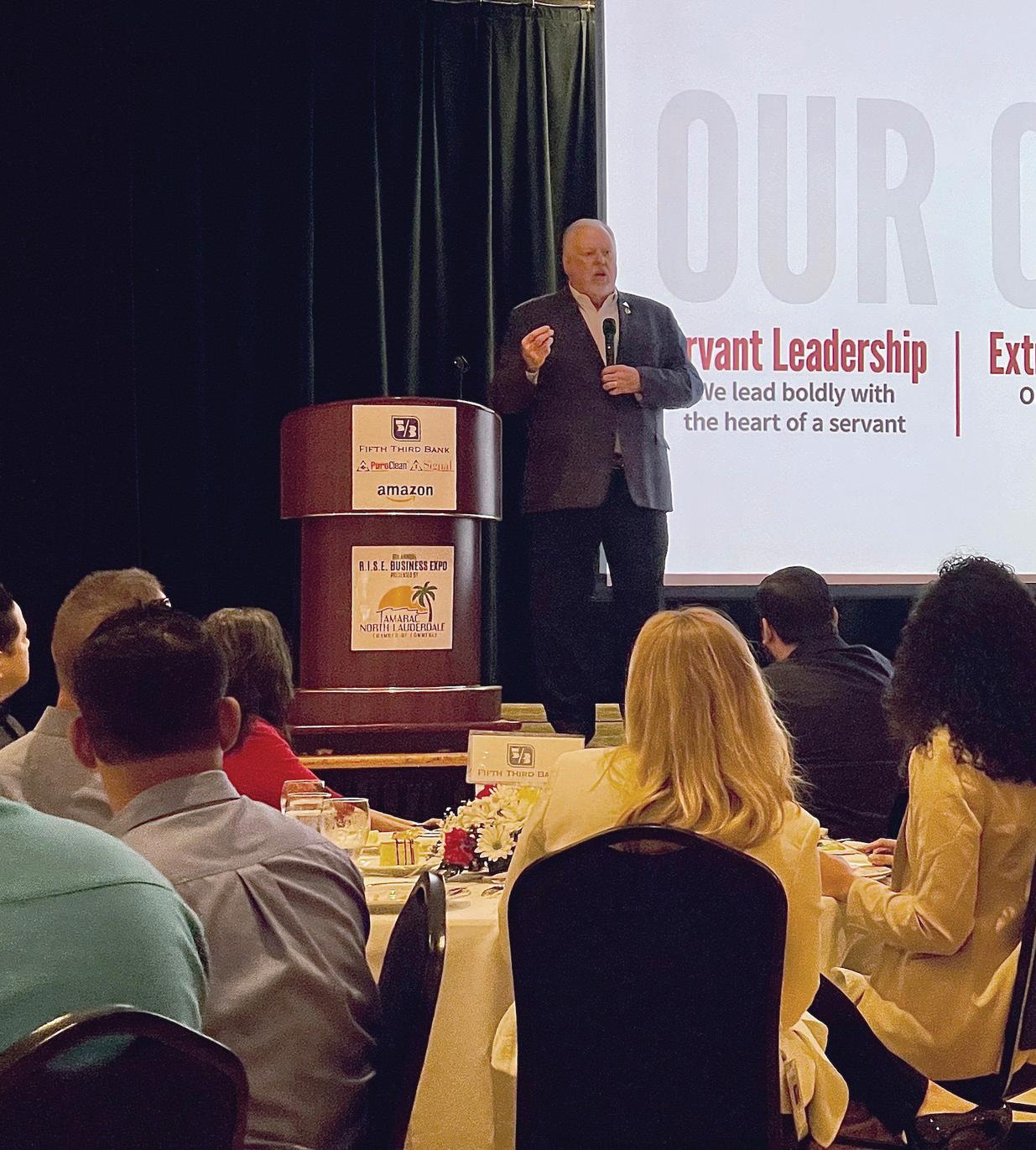


typically see financial success within their first year of opening. In fact, our last three rookies of the year went on to join our prestigious President’s Circle in only their second year.”
“PuroClean’s culture permeates the successes of the franchise and its franchise owners,” says White, whose many decades in the industry include positions at Domino’s and Allegra Network. “We have the best community of franchise owners I have ever worked with. Together with our support team and the incredible visionary leadership of Mark W. Davis and Frank Torre, who own our company, we are building a world-class brand with incredible momentum.”
PuroClean’s executives “have been purposeful about building
our culture of servant leadership, extreme ownership and active collaboration,” White adds.


“When you invest in a PuroClean franchise, you also invest in our reputation for relentless customer service and high-quality restoration work,” White says. Those goals dovetail with his favorite quote, a challenge from Vince Lombardi: “We will chase perfection, and we will chase it relentlessly, knowing all the while we can never attain it. But along the way, we shall catch excellence.”
“It’s a philosophy I like to
bring to PuroClean in everything we do,” White says. Our franchise owners and our home office teams, regional directors, and leadership team all work tirelessly knowing there will always be room for improvement. By working with this mentality, we are constantly evolving as a company, and this mindset has enabled our explosive growth.” —Mary Vinnedge
For more information, visit www.purocleanfranchise.com or www.franchiseconsultantmag.com, company code 16441.
PuroClean President and COO Steve White (left) says everyone at PuroClean works tirelessly with a philosophy that there will always be room for improvement.

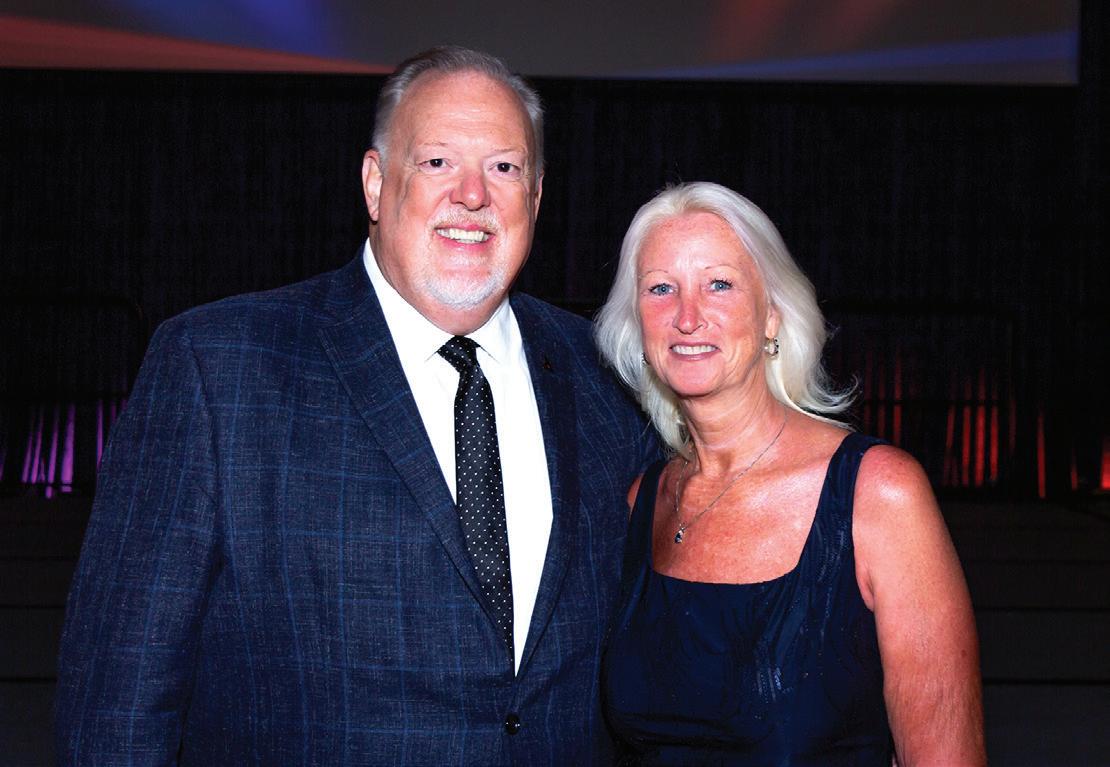
Since 2001 PuroClean franchise owners have been on call 24/7 to supply restoration and remediation services. The company’s roots actually extend back to 1986, when it was founded as Purofirst in Tamarac, Fla. Below are milestones in the company’s growth.
First location: 1986
Franchising since: 1991 as Purofirst and 2001 as PuroClean
Total units: 400
Fun fact: Within the last five years, PuroClean has doubled in size, growing more than 50% within the last two years alone.

“We have the best community of franchise owners I have ever worked with.”

recently celebrated an impressive milestone — the opening of its 300th location. The Canadian-based leather, plastic and vinyl restoration brand has enjoyed consistent growth since it started franchising in 1987 and plans to enter new markets across the U.S. and globally. So what's the secret? “First and foremost, it’s bringing in the right people to the business — both franchise owners and support staff,” says Matt Woodcock, Fibrenew's franchise development director.
Woodcock says that remaining true to Fibrenew's vision and staying away from chasing categories, trends or fads has also been key. “We lead with empathy and always do what’s right — not necessarily what’s easy — for the sake of the long-term vision. We think in 10, 15, 20-plus year terms and believe that’s part of the reason we have grown every single year for the past 3-1/2 decades.”
Fibrenew's team takes an individualized approach to support because of its unique nature. For example, there are many options for scaling, from adding more services and employees to increasing territory size. “We know that what works for one franchisee won't necessarily work for another.”

Along with having a niche, in-demand service and a flexible, mobile model, franchise owners are happy to own a green business. Last year alone, the company helped save more than 91,000 dumpster bins’ worth of damaged furniture, automotive components, marine seats, medical beds and more from ending up in landfills.
Woodcock believes that the future is bright for Fibrenew. “Even though we’re firmly established in the U.S. with 225 locations, we still have room for another 300plus franchises,” he says. “In many ways, it still feels like we’re just getting started.”
—Jill Abrahamsenmore information, visit www.fibrenew.com or www.franchiseconsultantmag.com, company code 16194.


Fibrenew has more than 300 locations in six countries. The company started franchising in 1987 and has consistently grown each year since.

TheHammer & Nails franchise has capitalized on a onetime void in the personal-care space: head-to-toe men’s grooming delivered in an enjoyable environment. Services include haircuts, shaves, manicures and pedicures, a menu that’s been so well-received that 20 franchises will open in the next nine months, doubling the number of units in operation. And by the end of 2023, that number will double again, says CEO Aaron Meyers.

“Hammer & Nails was founded to un-think men’s grooming as we know it, to elevate how men look after themselves,” Meyers says. “Men are voting with their feet and wallets wherever we open, which confirms that we have built a business model that succeeds.” And what goes into business success? He rattles off this formula: “A goal executed passionately while meeting massive consumer demand equals unrivaled performance.”

Several factors figure into Hammer & Nails’ growth and fandom, both in the shops and on social media, Meyers says. “We are the only complete men’s grooming business franchise in the country. Our shop ambiance is second to none. Our recurring subscription model provides consistent revenue to franchisees. We have our own line of grooming products. Most important, the demand for what we bring to market is huge. Men are


“You’ve got to nail it before you scale it.”Hammer & Nails CEO Aaron Meyers anticipates exponential growth for the men's grooming franchise.
hungry for a place built for them, which shows in the shop results.”
But demand alone can’t sustain a franchise, Meyers contends. “Your business is not ready to franchise if you can’t get an average franchisee to succeed. You’ve got to nail it before you scale it. You need processes and systems that are proven before you think of franchising. Also, hire for where you want to be, not where you are. Lastly, you need an experienced franchise team that can lead your business confidently into the future.”
Hammer & Nails underwent many tweaks as a prelude to franchising, and Meyers insists that change will continually infuse Hammer & Nails’ progress. “We will stay relentlessly focused on
refining a business that delivers a world-class complete grooming experience in an environment that makes all men relax and smile. We will also continue to partner with the best franchisees. Together we will no doubt grow to over 1,000 shops nationwide.”
Hammer & Nails, which has headquarters in Folsom, Calif., is currently seeking franchisees in the United States and Canada as well as in other countries. Hammer & Nails franchisees should be enthusiastic about men’s grooming services and set



high standards for customer care.
Hammer & Nails encourages multi-unit ownership. “The best vote in confidence you can have as a franchisor is when your franchisees choose to open a second shop,” Meyers says. “We are obsessed with delivering value to our franchisees for the royalties we receive, and that value combined with excellent results equals more shops.”
—Mary VinnedgeFor more information, visit www. hammerandnailsfranchise.com or www.franchiseconsultantmag. com, company code 17830.
Slow and steady growth has been the mantra for Bubbly Paws since it opened for business in April 2011. Before co-founders Patrycia and Keith Miller ever entertained the thought of franchising the self-service dog wash and grooming brand, they grew it by adding corporate locations near their original shop in Minneapolis. “When we opened our first Bubbly Paws in 2011, we never even thought about franchising. We focused on perfecting our business model and studying our competition,” Keith says.


It wasn’t until 10 years later that they launched the franchise offering. “We really wanted to make sure we had years of hands-on experience before franchising.”


To date, Bubbly Paws has five signed agreements with construction underway on three of the stores. “We know many franchisors have dreams of super-fast growth, but that’s something we don’t want initially.” Keith says. “I would much rather have five open locations the first year and have every franchisee making money rather than having 30 units open and then find we are not able to support those units — or have issues that cause major growing pains and struggles for our franchise owners.”
With an infrastructure in place to manage its five corporate locations, the Bubbly Paws team is positioned to coach, lead and mentor franchisees to achieve the successes they set for themselves.
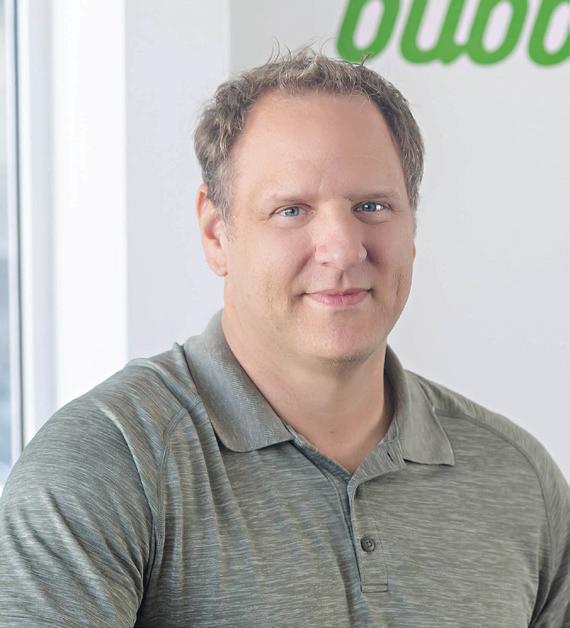
The Millers feel that Bubbly Paws' growth is dependent on the quality of the franchisees they award. “We only want to work with franchise owners who have a true passion for the pet industry,” Keith says. “Right now so many people want to get involved with pets because it is trendy and there is a very high rate of success.” The Millers qualify all candidates and make sure they are in it for the right reasons before awarding a franchise.
Keith describes the Bubbly Paws sales process as laid-back, with a focus on informing candidates rather than selling to them. “Candidates are never hounded to make a decision,” he says. From franchise development to the way they treat employees and customers, Bubbly Paws’ whole approach is friendly and transparent. Since they opened for business, the Millers instilled a family-like culture that has helped the business thrive. They say that valuing team members has been a big part of that equation and has made all the difference.
While the industry average
for retaining a groomer is two years, many of Bubbly Paws’ groomers have been with them for more than five. “We take the same approach with our franchise,” Keith says. “We have a great back-office support team, including many employees who have come up from working inside the stores,” he says.
“Even now I really hate the word ‘franchise.’ I look at it as the franchisee’s store, and our job is to be their cheerleader and support system,” Keith says. Complete transparency in the grooming process and the customer experience has also contributed to the Bubbly Paws culture. For example, when a
dog is groomed at Bubbly Paws, customers have a full view of the grooming rooms (instead of going out of view into the back of the store) and can follow the process through proprietary software.
The Millers take feedback from customers, consultants, and candidates. “One thing that sets Bubbly Paws apart is that we will always want to continue to learn, grow and adapt. We don’t want to get set in our ways and become complacent.”
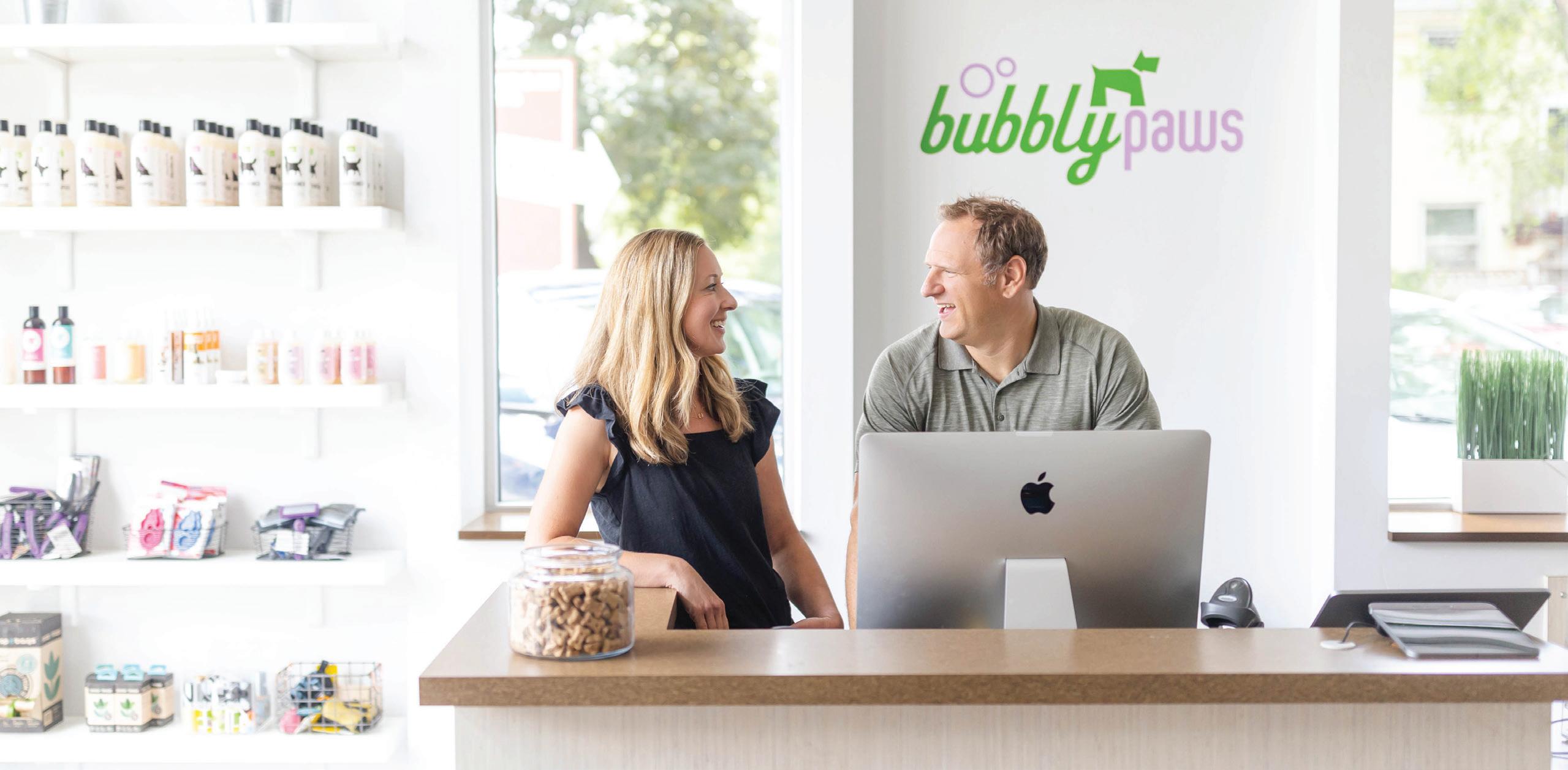 —Jill Abrahamsen
—Jill Abrahamsen
For more information, visit www.bubblypawsfranchising.com or www.franchiseconsultantmag. com, company code 17822.
• Charlotte, N.C. (single unit)
• Keller, Texas (single unit)
• Long Island, N.Y. (single unit)
• Stuart, Fla. (single unit)
• Houston, Texas (five-pack)
“To achieve something you’ve never had, you must do something you’ve never done.”
“Don’t try to copy anyone. Build your own business.”

Thegrowth and inspiration for In Home Personal Services dates back to the time the company's co-founder was a teenager. At the age of 15, Michael Collura began working with his mother at a nursing home. That experience helped him realize that he genuinely wanted to care for people and prompted Collura and his mother to create In Home Personal Services in 2004. Its mission is to provide dignified, quality care that allows seniors to live comfortably in their own homes.


Throughout the years, Collura perfected every aspect of In Home Personal Services. He created a school to meet the demand for quality care givers, took feedback from franchisees to improve the system, continued to help others, and improved the business model during the pandemic.
In Collura’s view, there are several important elements for sustainable growth in a franchise system. “You have to be able to grow to scale and be prepared to write what your KPI means. Growth and innovation are
Michael Collura (opposite, far left) attribues the success of In Home Personal Services to his team, many of whom have been with the brand since its inception in 2004.

cornerstones for any long-term successful business. Doing well in the first few years is a challenge, but certainly not so much in a franchise system,” Collura says.

Looking back on his franchise system, Collura is happy he took the time to build it right and in a manner that matters to the franchisees. “Fortunately, that lesson is one we learned early on. We achieved all the goals we envisioned to set ourselves apart in the industry,” he says. Collura credits his franchise partners and leadership team with realizing those goals.
To help franchise owners scale effectively, Collura looks at the big picture. “It is no longer enough for a brand to say they have a proven business model. What does that even mean in a post-pandemic economy? The rules have changed, and brands need to be ready to build an operation platform that is recession- and pandemic-resistant. Otherwise nothing you do will be effective.”
Collura's advice for emerging brands is to be unique. “Don’t try to copy anyone. Build your own business. If you set out to be a mirror copy, you will have nothing more than a diluted brand with no vision and no differentiators.”
— Haley CafarellaFor more information, visit www.ihps.com or www.franchiseconsultantmag.com, company code 17708.
Before franchising In Home Personal Services, co-founder Michael Collura perfected its business model. Here are some of the milestones in the brand's evolution.
2004: In Home Personal Services is founded.
2005: Within its first year, the company serves 100 seniors.
2008: Collura establishes a school to meet the demand of quality caregivers. The school is named Matthews after Collura’s late brother.
2009: Planning for the franchise system begins.
2013: In Home Personal Services awards its first franchise locations.
2020: Throughout the Covid-19 pandemic, the brand protected its franchise owners and showed the resilience of its business model.
2022: In Home Personal Services has 15 units: nine franchised and six corporate owned locations. The company is expanding across the Midwest.
Toachieve sustainable growth in a franchise system, you need to be absurdly picky about who you allow to join the family, advises Matt Kelton, president of Showhomes, a franchise that specializes in home staging, home styling, updating and interior design.


When considering a franchisee candidate, the Showhomes team looks at financial capabilities as well as a candidate's skill set, personality profile and core motivators. Then the team compares those qualities to Showhomes’ top-performer benchmark. “We want franchise owners who will network aggressively and who aren't afraid of hard work,” Kelton says.
Building relationships is essential for franchisee success at Showhomes, and positivity is a key element to that. “Growing a franchise is a roller coaster in many ways. The Debbie Downers of the world normally don’t last long,” he says.

To Kelton, the role of a franchisor is one part

cheerleader and also one part cop. For example, he says franchisees can get distracted by non-revenue generating activities/shiny objects that keep them from selling to increase profits. To keep them on track, Showhomes offers a marketing checklist so franchise owners can understand if they are taking the right steps to make sales. “At the end of the day, if franchisees are profitable and happy, you will be able to not only grow the system, but more easily add units.”
Founded 1986 and franchising since 1994, Showhomes has 50 locations and 25 franchisees. The company has earned the Franchise Business Review (FBR) Top Franchise Culture Award for the last three years and is in the FBR Franchise Hall of Fame for franchisee satisfaction. “This is something I’m extremely proud of,” says Kelton.

Kelton describes Showhomes’ unit positioning as a one-stop shop for home staging, home updates, renovations, interior design, home shopping services, and more. “This space is projected to more than double in the next 10 years. This is a fragmented market with no major category killer,” he says. “The demand for our services is beyond what we can handle.” Showhomes has partnerships with national companies like Toll Brothers, Curbio, FlyHomes and more. “As our unit economics continue to grow and we become more aggressive in marketing for new franchisees, we anticipate significant growth in the next few years.”
 —Jill Abrahamsen
—Jill Abrahamsen
For more information, visit www.showhomes.com or www.franchiseconsultantmag.com, company code 17357.

“There has never been a business that succeeds without sales.”
Finding the right candidates is a priority at Showhomes.


In2003, Assisted Living Locators CEO and founder Angela Olea launched the senior placement brand in her hometown of Phoenix with a mission to help families face the uncertainty of caring for aging parents. As a registered nurse, Olea saw firsthand how difficult and emotional senior care decisions could be, and she knew that she could help provide a solution. The business took off, and in 2006, Assisted Living Locators became the first placement franchise in the U.S. Fast forward to today, and there are 125 Assisted Living Locators franchises in the U.S.
In August 2022, Assisted Living Locators was acquired Executive Home Care, a senior care brand backed by private equity firm The Riverside Company. The strategic partnership expands the company's footprint and offers more possibilities for franchise owners. “With our acquisition we have the opportunity to leverage the expertise of their teams to move Assisted Living Locators to new levels of customer service and quality care,” Olea says.
As she built the franchise system, she kept her sights set on sustainable growth and franchisee success. She attributes the brand's steady growth to solid senior leadership, proven processes and a great support team. “We have created a franchise culture of sharing best practices, and it is a badge of honor when we see the student become the teacher.”
 —Jill Abrahamsen
—Jill Abrahamsen
For more information, visit www.AssistedLivingLocators.com or www.franchiseconsultantmag.com, company code 16926.
“Rising tides raise all ships.”
















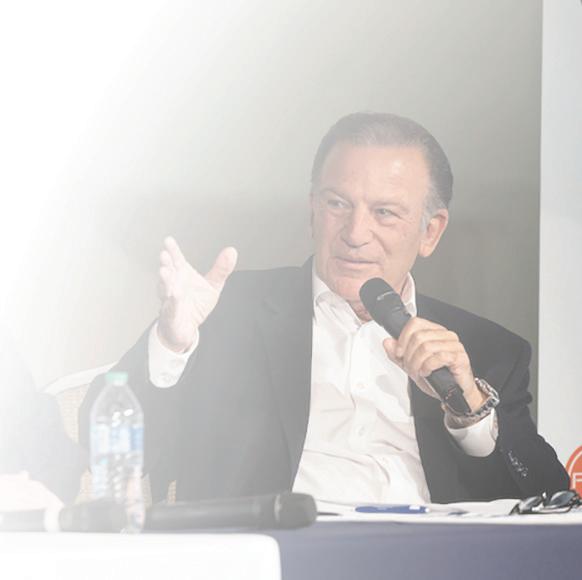











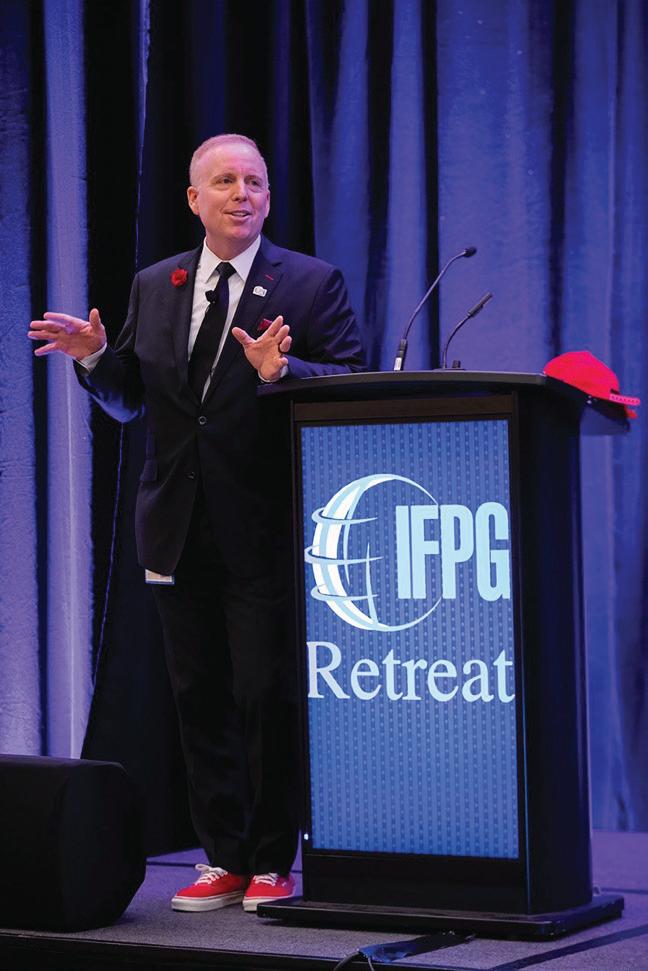
TOP: The 60-plus member REP'M team is a mix of focus and fun. RIGHT: The REP’M team and IFPG members enjoy the Red Hot Chili Peppers concert at the IFPG Regional Discovery Mixer in Charlotte, N.C.


a mission to help franchise brands grow sustainably and responsibly, REP’M group strives to push the envelope on the traditional franchise sales organization. Originally named RPM, the company was launched in 2017 and initially focused on the franchise real estate process. Entrepreneur Rob Cambruzzi noticed an industry-wide problem: Franchise licenses were being sold, but units were not opening as they should. His solution was RPM, a service designed to help brands and their franchisees open locations the right way.
Cambruzzi started the business with a team of five, but has grown his staff as well as his offerings. Shortly after launching RPM, Cambruzzi partnered with Jason Ryan, and embarked on the company's first franchise sales contract with fitness franchisor ISI. In January 2020, Nick Sheehan joined as a partner and added several brands to the client roster. At that point, the three partners decided to rebrand the company to REP’M Group. They created four pillars of the business (BRAND’M, GROW'M, SCALE'M and BUILD'M) to cover all phases of the franchise development process, including branding, sales, real estate and operations.
Today REP’M Group has more than 60 employees facilitating top shelf franchise consulting services to over 20 brands nationwide. The company plans to keep expanding by adding brands and building emerging franchisors across the globe. Here, Cambruzzi, Sheehan and Ryan share their best practices for sustainable franchise growth.

“If you have validation from your clients, then you are winning.”
—Rob Cambruzzi
Growth
What are the most important elements for sustainable growth in a franchise system?
NICK SHEEHAN: Financial capital and human capital are key to growth. However, financial capital only gets you things. People get you results. Most important, the people you hire should have experience and an understanding of franchisee support. This will allow for a much more successful working relationship between the two and likely get better results for the franchisee since there's a clear path to success.
How do you help franchisees scale effectively?
JASON RYAN: Long-term sustainable growth in a franchise system requires the franchisees and the franchisor to have mutually aligned success. Success is defined by the bottom line of the franchisee, not the top line of the franchisor. Most importantly, franchisee profitability is the outcome of a good business system, a differentiated model and very good franchisor support. If these things exist and franchisees experience good unit economics, they will both validate the concept and will likely grow within the system over time.
So the short answer is validation, but really validation is not only tied to enjoying the industry and the people you work
with. Good validation comes when franchise owners have both emotional and financial success for themselves and their families. This wealth creation is the key to growing rapidly and most important, for achieving long-term sustainable growth.
The best franchisors will have a laser focus — almost an obsession — on franchisee profitability. Franchisors who do will have franchisees who recognize, appreciate and validate the model long term.
What have you learned from building your operation and how will REP'M continue to grow?
ROB CAMBRUZZI: In building REP’M, we focused on bringing in the best talent available and creating a premium service. Our priority is validation and that is the core of any good business model. If you have validation from your clients, then you are winning.


REP’M plans on adding seven to 10 brands over the next 12 months. We will grow with brands in several different spaces including health and wellness, early childhood education and services. We will also concentrate on having a mix of concepts that have already been franchised along with brands that only have a corporate model, Ellie Mental Health is an example. We will focus on doing things the right way so we can provide exceptional results.
What is the secret to REP'M's success?
NICK SHEEHAN: Three things come to mind:
1. Our team is flat-out awesome! Our culture is one-ofa-kind and people want to work with us.
2. We offer more solutions for emerging brands than any other group.
3. We have great systems. We are a mix of focused and fun, which makes us flexible but also super-effective.
When you combine those three qualities, you have a system that people want to use.
“Capital only gets you things. People get you results.”
—Nick Sheehan
“Success is defined by the bottom line of the franchisee, not the top line of the franchisor.”
—Jason Ryan



AtIFPG, we consider consultant Karol Mercurio franchise royalty. She has been with IFPG since day one and helped us set the standard for excellence in franchise consulting. As one of the very first female consultants in the industry, Karol has ushered countless lives into successful franchise ownership. We all love Karol for her great personality and sense of humor and we look up to her for her expertise. Above all, we value her friendship. Below, Karol shares tips for growing a successful franchise consulting business.
STAY FOCUSED: Do not get discouraged when times get tough. It will pass!
GO ALL-IN: Be passionate about your consulting business and work it. Find your rhythm. Not all techniques and strategies work the same for every consultant.
GET INVOLVED: Never stop learning and building those allimportant relationships. Take the time to learn the brands and get to know the people behind them. Take advantage of all the opportunities IFPG has to offer.
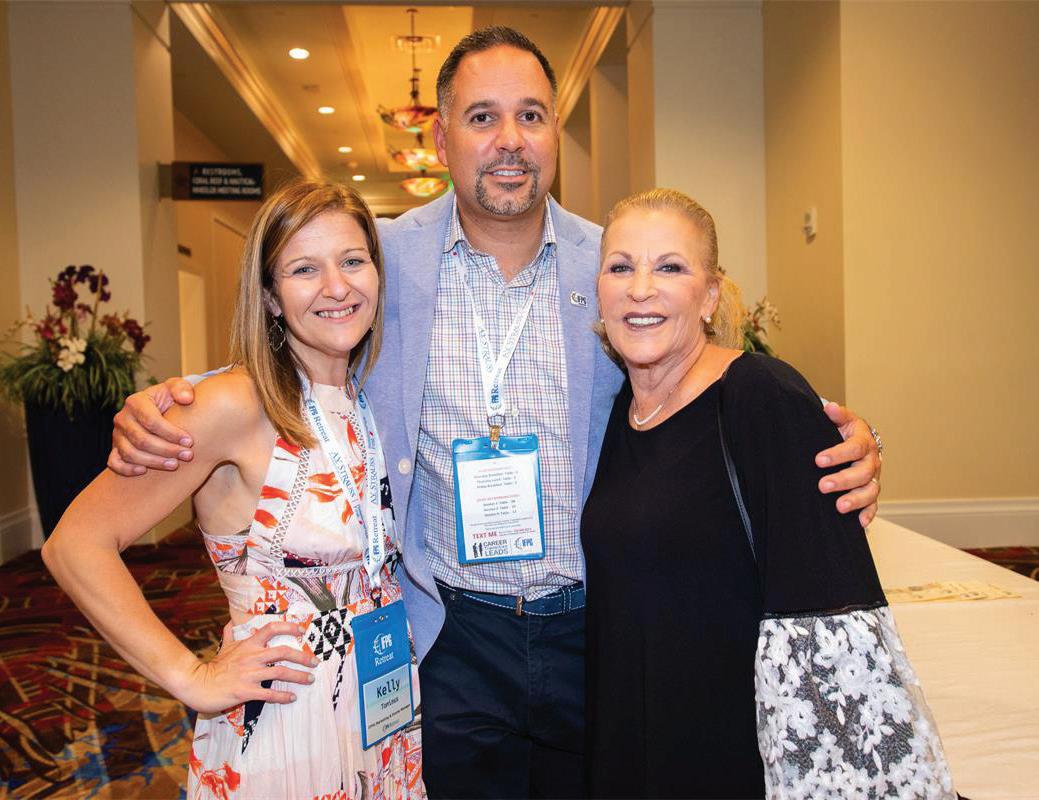
LISTEN TO YOUR CANDIDATE: Your candidate comes first! Take the time to get to really know your candidate’s long term/short term goals, interests, and budget so you can set them up for success.
COMMUNICATE: Communication is key to success in franchise consulting. Consultants should stay connected to both candidates and franchisors through the entire discovery process.
